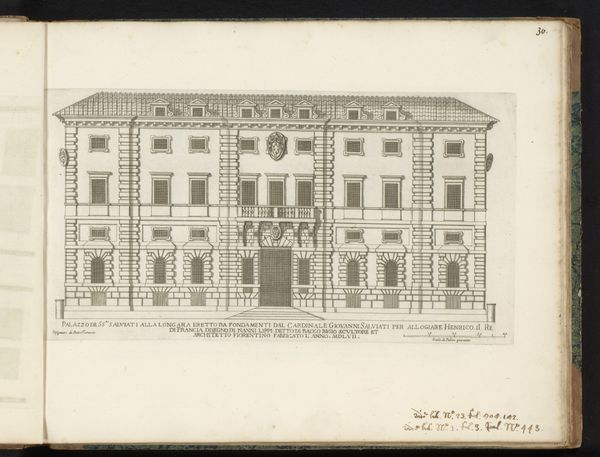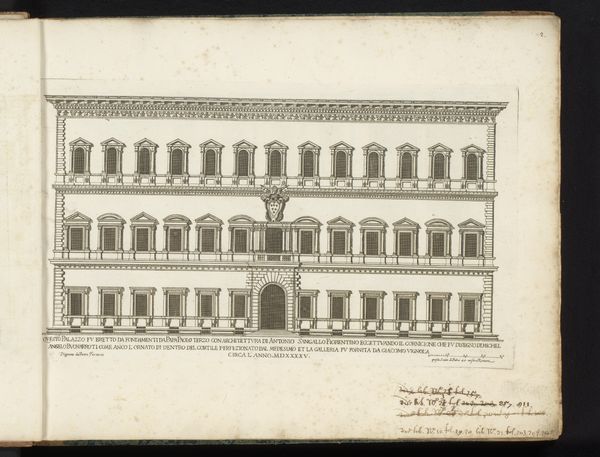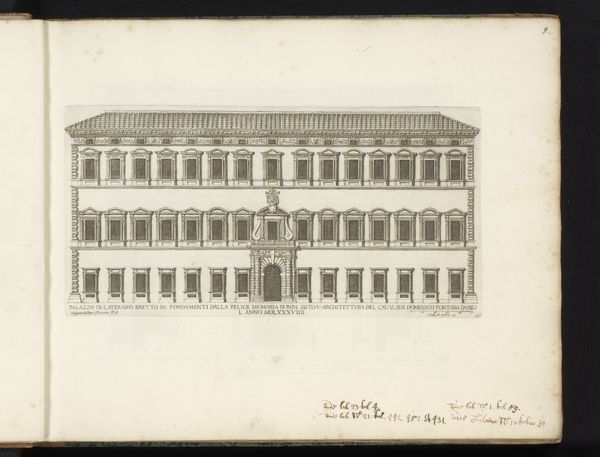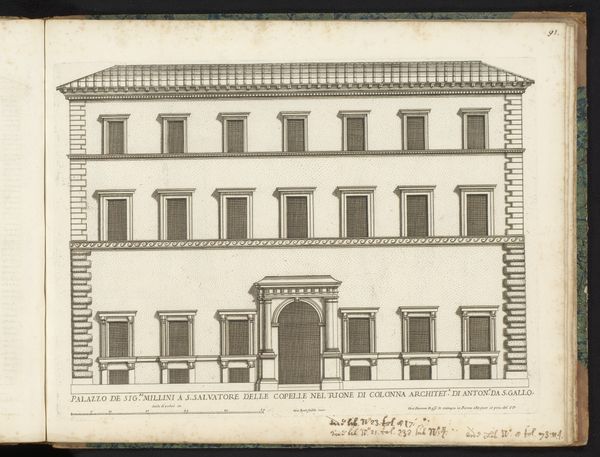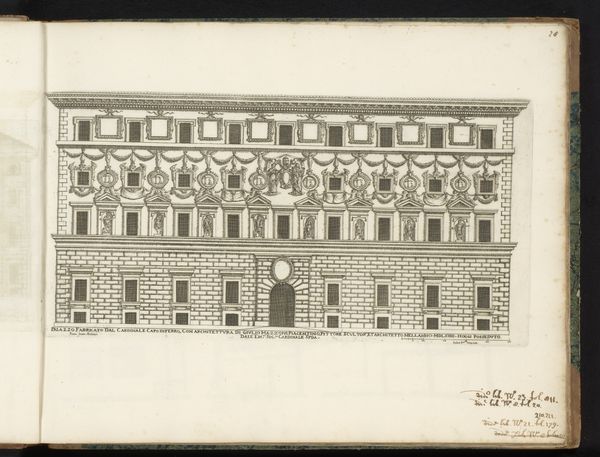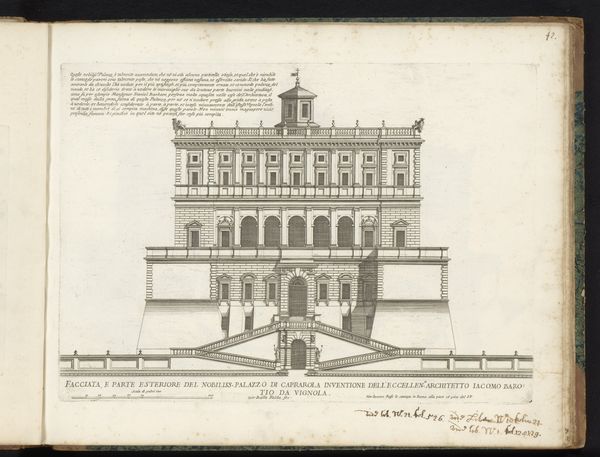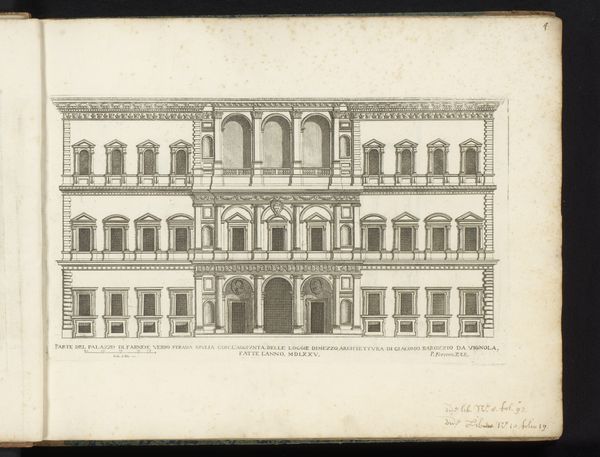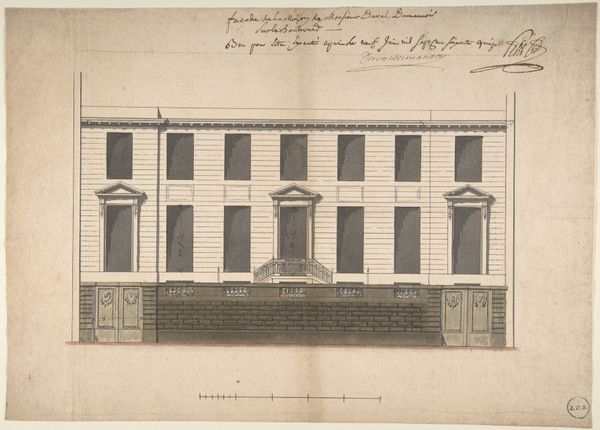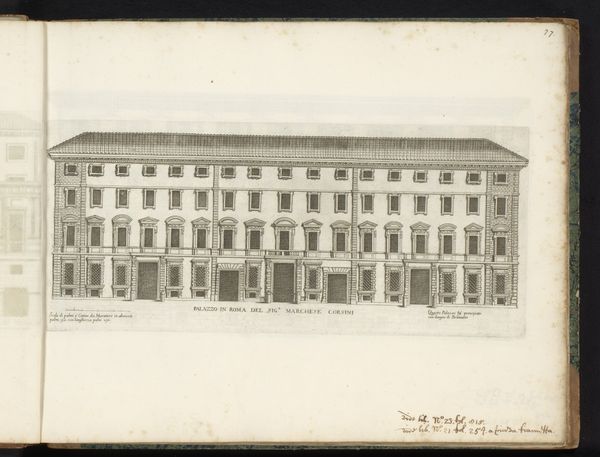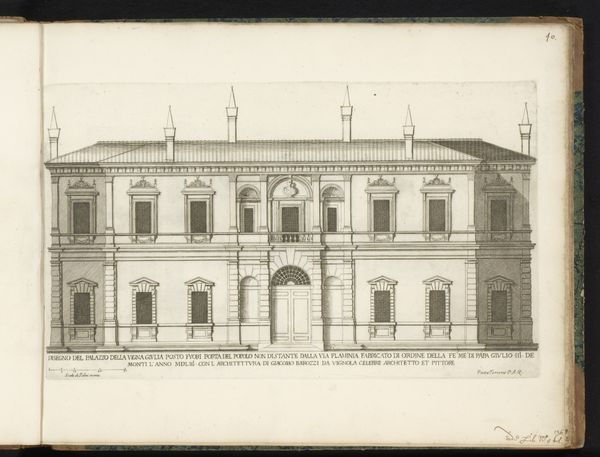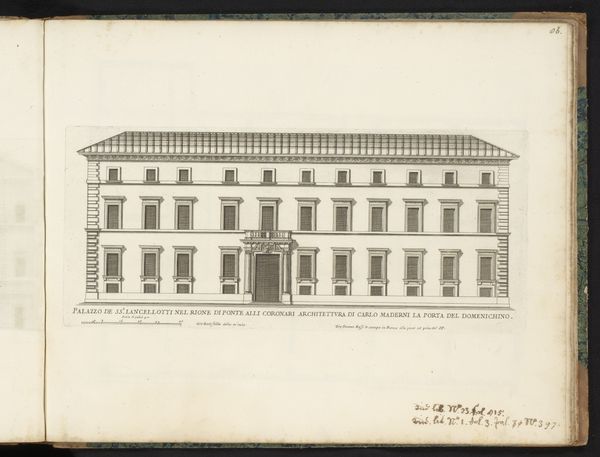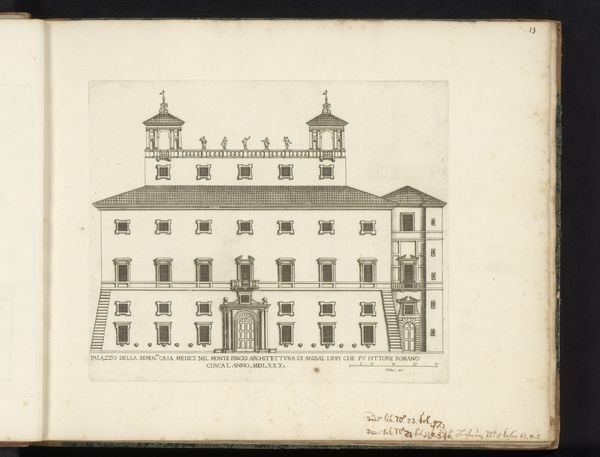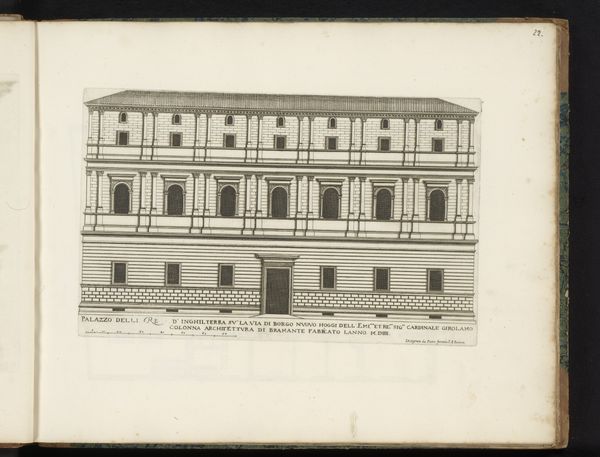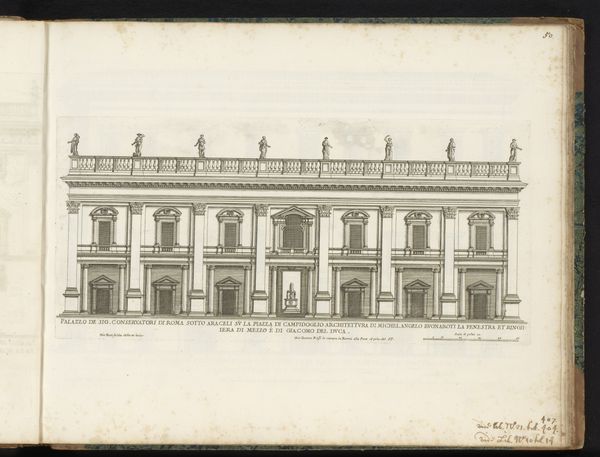
drawing, print, engraving, architecture
#
drawing
#
baroque
# print
#
geometric
#
line
#
cityscape
#
engraving
#
architecture
#
building
Dimensions: height 259 mm, width 406 mm
Copyright: Rijks Museum: Open Domain
Curator: This is a print depicting the façade of the Archiginnasio della Sapienza in Rome, created by Giovanni Battista Falda after 1655. What strikes you immediately? Editor: The sheer linearity! The engraving's commitment to depicting architectural structure using a kind of objective, almost scientific, precision. The balanced symmetry also makes it strangely calming. Curator: Absolutely. This print reflects the Baroque era's interest in architectural documentation, but also the political importance of Rome’s academic institutions. Falda, through his engravings, disseminated images of Rome’s architectural renewal under powerful pontiffs. Editor: Observe how the windows recede into shadow. Falda’s delicate use of hatching emphasizes depth and highlights the imposing scale, underscoring a Baroque fascination with grandeur. Curator: Exactly. The Archiginnasio, then a prominent center of Roman education, showcased papal power through its design, renovated under Pope Gregory. Prints like this amplified that message across Europe. Editor: It’s fascinating how a two-dimensional engraving conveys the texture of stone through the fineness of the lines. Also, consider how it emphasizes architectural harmony and the mathematical relationships between parts. It goes beyond mere representation. Curator: It also invites viewers to participate in Rome's urban and intellectual life, even from afar. Falda made these spaces available. Editor: So this artwork provides us more than architectural detail—a kind of cultural insight? Curator: Exactly. It's not merely about form; it embodies Rome’s architectural ambitions and its efforts to project strength through cultural works. Editor: It's so interesting how examining the lines closely evokes larger historical narratives about cultural legacy and power dynamics. Curator: Indeed, seeing art in context opens a wealth of interpretation.
Comments
No comments
Be the first to comment and join the conversation on the ultimate creative platform.
